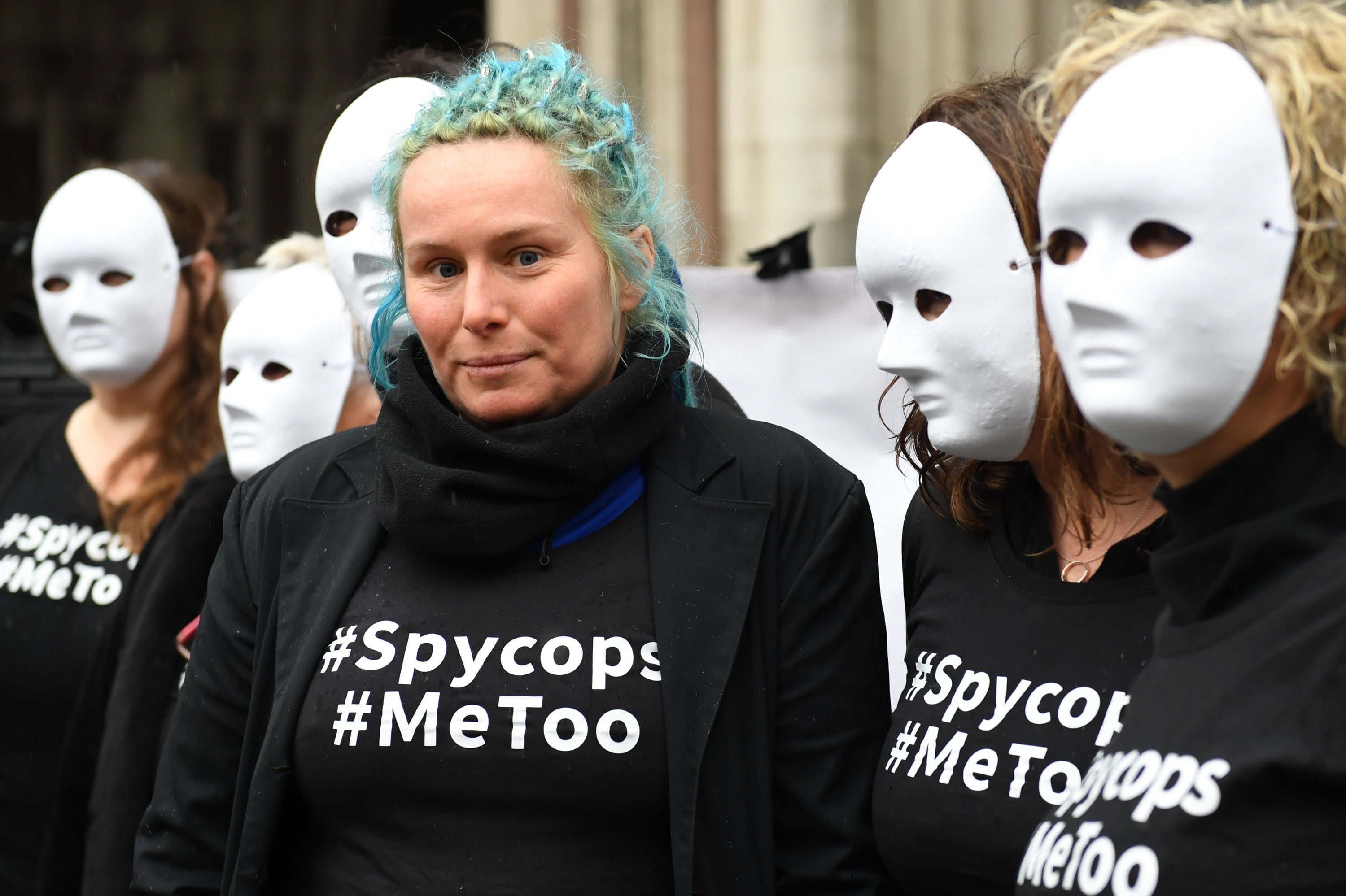Activist deceived into relationship with undercover officer awarded £230,000
Environmental activist Kate Wilson awarded almost £230,000 in compensation

An environmental activist who was deceived into a nearly two-year relationship with an undercover officer has been awarded nearly £230,000 in compensation after winning a landmark tribunal case against Metropolitan Police.
Kate Wilson had a “whirlwind romance” with undercover officer Mark Kennedy after he was sent by the now-disbanded National Public Order Intelligence Unit (NPOIU) to spy on an environmental activist group Ms Wilson was associated with.
The relationship ended amicably in 2005 after more than a year when Ms Wilson moved to Spain. However, five years later she discovered that her former lover, who she knew as “Mark Stone” – his cover identity – was a police officer.
The revelation led to legal action against the Met and the National Police Chief’s Council (NPCC), both of which have admitted to a number of breaches of Ms Wilson’s human rights and apologised for the “hurt and damage” the intelligence operation caused.
The Investigatory Powers Tribunal (IPT) ordered the Met Police and NPCC to pay a total of £229,471 to Ms Wilson “by way of just satisfaction for the breaches of her human rights”.
In a statement, Helen Ball, the Met’s Assistant Commissioner for Professionalism, said: “We recognise the gravity of the judgment in this case, which outlined a series of serious failings that allowed Kennedy to remain deployed on a long-term undercover deployment without the appropriate level of supervision and oversight.
“In entering into a sexual relationship, Kennedy’s actions went against the training and guidelines undercover officers received at the time. However, the Tribunal found that the training was inadequate and more should have been done to consider the risks of male undercover officers forming relationships with women. We accept these findings.
“It is important to note that since Mark Kennedy’s deployment there has been enormous change in undercover policing, both in the Met and nationally, and I want to be clear that this case in no way reflects modern-day undercover policing.”
Chief Constable Alan Pughsley, the National Police Chiefs’ Council lead for undercover policing, also commented on the “significant changes” to the way undercover policing is conducted.
“The selection and training of all undercover officers have been standardised and is licensed by the independent body, the College of Policing,” he said.
Mr Pughsley described the training as “more rigorous” and stated that the “psychological fitness and well-being of undercover officers is a key consideration during their recruitment, training and deployment”.
He added: “In addition to the relevant laws, regulations and rules in place, the conduct of undercover officers is governed by a National Code of Conduct and the College of Policing’s Code of Ethics.
“Significant work has been undertaken to ensure undercover officers and those authorising their deployment understand the legal limits within which they operate, including the core concepts of deployments needing to be necessary and proportionate, and the need to minimise collateral intrusion into the private lives of others.
“Undercover deployments continue to be supervised by those at a senior level and the independent Investigatory Powers Commissioner’s Office is made aware of and “scrutinises undercover deployments.”
Mr Kennedy, who resigned from the Met in 2010, had sexual relationships with as many as 10 other women while undercover, including one with a woman known only as “Lisa” which lasted for six years. His identity came to light when Lisa discovered his passport with his real name.
Despite Ms Wilson’s “amazing and historic” achievement, Lisa told The Independent she has no faith that the Met has made any meaningful changes.
She said: “They have constantly denied any culpability and their statement really misses the point.
“They mainly comment about the sexual relationship, but the IPT is very clear that that is not what the compensation is about. It’s specifically about the abuses and breaches of her human rights that the Met was responsible for.”
She adds: “The Met is putting the focus on the sexual relationship rather than the fact that the IPT decreed the whole operation as unnecessary and unlawful in a democratic society.”
Despite her doubts, Lisa recognises the IPT’s ruling as an “amazing and historic” achievement as the body doesn’t normally have public hearings.
“The claim was about the personal intrusions of Kate’s privacy and my privacy. But it’s about so much more than that. It’s about the whole way protest is policed in the UK,” said Lisa.
“They’ve interfered with her democratic right to protest. It’s a bit like the Stasi or what we imagined the Soviet Union was like, but it’s happening here.”
She continued: “Eight of us started the claim with Kate and she got further than any of us could. Her victory is a victory for all of us.”
Join our commenting forum
Join thought-provoking conversations, follow other Independent readers and see their replies
Comments
Bookmark popover
Removed from bookmarks